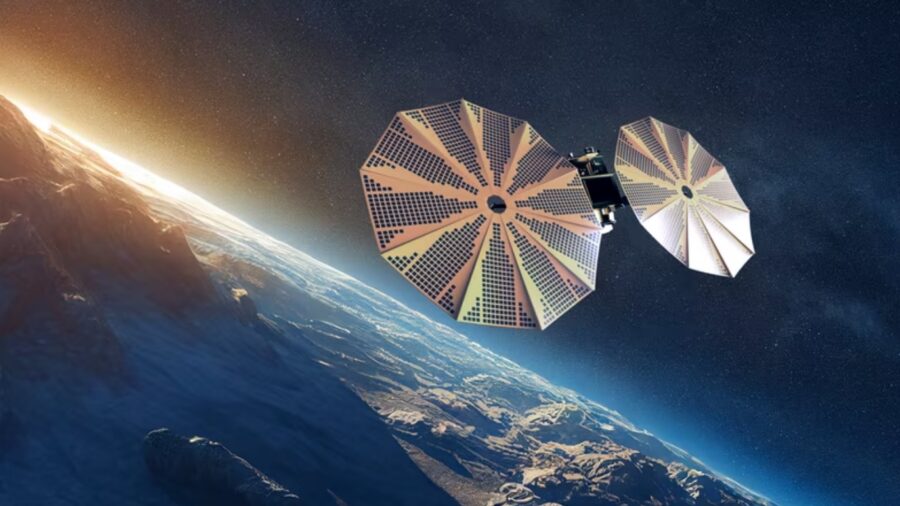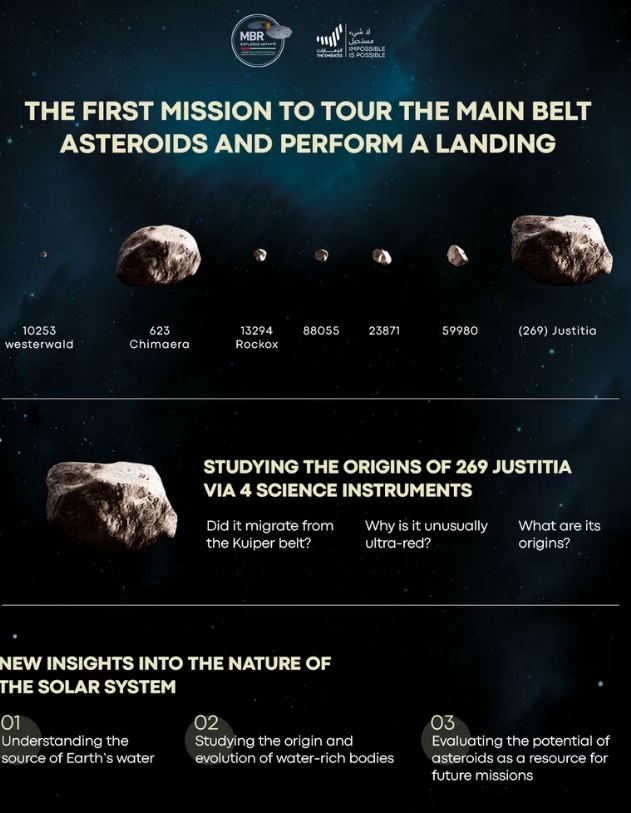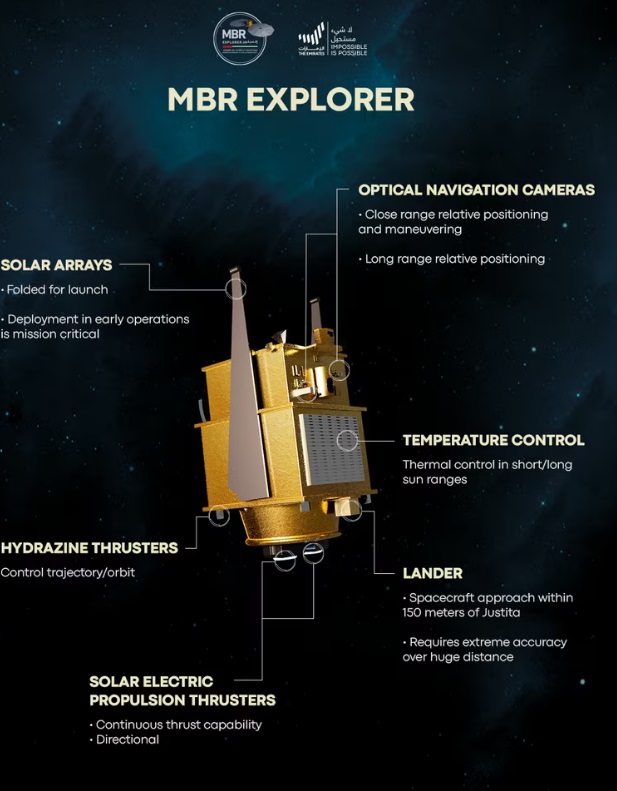An ambitious new mission from the United Arab Emirates would fly closely and speedily by seven main-belt asteroids.

The United Arab Emirates announced earlier this week its formal plans to send a mission to the asteroid belt in a grand tour past seven targets.
The working name for the mission is the Emirates Mission to the Asteroid Belt (MBR). That acronym echoes that of the United Arab Emirates (UAE) prime minister, Sheikh Mohammed bin Rashid al Maktoum (MBR).
“This mission is a follow up and a follow-on to the Mars mission, where it was the first mission to Mars from the region,” says project director Mohsen Al Awadhi (UAE Space Agency). “We’re creating the same thing with this mission. That is, the first mission ever to explore these seven asteroids specifically, and the first of its kind when it's looked at from the grand tour aspect.”
A Grand Tour of the Asteroid Belt
The mission has a three-week long launch window that opens on March 3, 2028. No launch carrier or launch site has been announced yet. For gravitational assists to the asteroid belt, the mission will first make multiple flybys past Venus, Earth, and Mars, starting with Venus in July 2028, before arriving at the first asteroid target, 10253 Westerwald, in February 2030.

UAE Space Agency
The mission will target the following asteroids: 10253 Westerwald, 623 Chimaera, 13294 Rockox, and three asteroids without official names (yet): 2000 VA28 (88055), 1998 RC76 (23871), and 1999 SG6 (59980). The UAE probe will be traveling at 20,500 miles per hour (9 km per second) and will pass just 150 kilometers (93 miles) from each target.
The climax of the mission will occur in 2034, when the spacecraft will dispatch a lander in an attempt to touchdown on the 54-kilometer-wide asteroid 269 Justitia.

NASA/JPL
Justitia is of special interest because its spectrum shows that it’s quite red, likely due to a coat of organic molecules that's more typical of outer solar system objects. Currently in a 4.2-year orbit around the Sun, Justitia might have migrated to its present position.
The mission builds on precedent: Similar (but not identical) to NASA’s Lucy mission, which is currently en route to multiple Trojan asteroids, MBR will carry solar power as well as two imagers and two spectrometers. The two mission profiles are likewise similar. The idea to rendezvous and land on an asteroid also has precedent: Japan's Hayabusa and NASA's Osiris-Rex both completed sample returns, while ESA’s Rosetta mission deposited the Philae lander on Comet 67P Churyumov-Gerasimenko.
The Emirates Mission to the Asteroid Belt exemplifies our nation's commitment to pushing boundaries in space exploration. Venturing beyond Mars with a ground-breaking mission touring the asteroid belt and deploying a lander on an asteroid, EMA aims to deepen our understanding of… pic.twitter.com/AqUIg73MYU
— Sarah Al Amiri (@SarahAmiri1) May 29, 2023
The MBR science team hopes to collect the data necessary to answer key questions in planetary science, including the source of Earth’s water and how the water-rich bodies in the early solar system evolved. The MBR will also collect information useful to potentially mining asteroids for resources in the future.

UAE Space Agency
This is the UAE's second venture into interplanetary space. The UAE launched its successful Mars Hope mission in 2020, which is currently orbiting and exploring the Red Planet. Another mission, the nation’s Rashid lunar rover, recently crashed on the Moon, along with the Hakuto-R lander that was carrying it.
The UAE has also sent astronauts to the International Space Station and recently fielded crew on the Axiom Space Crew Dragon mission with SpaceX. Further afield, UAE even has ambitions to place a colony on Mars by 2117.
It’ll be exciting to see UAE carry out the asteroid exploration mission in the coming decade, as the agency proves itself as a major player in the international space exploration community.
 0
0
Comments
You must be logged in to post a comment.